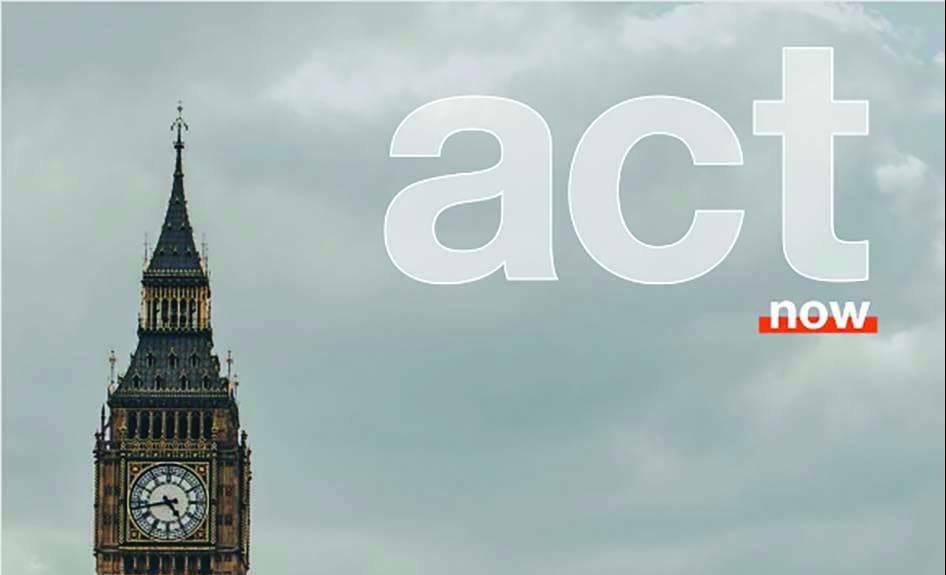It’s good to look back on the past year of this column and report on progress.
The overall theme has been one of better business – to promote more responsible, inclusive and fairer business whereby local companies accept that they are part of a community. Rather than an inward-looking focus on short-term profit maximisation, society expects business to take a long-term stakeholder perspective – that considers the triple bottom line of people and planet as well as profit.
Better Business Act
This multi-stakeholder approach may well become obligatory by law, if the Better Business Act campaign has its way. Now with over 1,500 signatories across the UK (up from 800 a year ago, with 67 in the East Midlands) as well as cross-party parliamentary support, this campaign aims to change Section 172 of the Companies Act. It would compel company directors to balance the interests of all stakeholders – and also report on how they do so.
If and when the law changes, how well positioned is your business for this?
In past articles we have looked at the ‘alphabet soup’ of CSR-ESG standards, guidance and frameworks, from B Corp through to ISO26000 on to Global Reporting Initiative (GRI) and SASB – Sustainability Accounting Standards Board, renamed the Value Reporting Framework now recently merged with the International Financial Reporting Standards Foundation. IFRS seeks to drive the connectivity between sustainability reporting and financial statements.
No longer will it be enough to do a separate voluntary sustainability report – sooner or later it will become compulsory to blend social impact metrics with your annual report and accounts.
Impact reporting
Harvard Business School leads a major initiative called the Impact-Weighted Accounts (IWA) project. It is driving the creation of financial accounts that reflect a company’s financial, social and environmental performance, statements that capture external impacts to aid investor and managerial decision-making as part of the value creation process.
The IWA project is led by Prof. George Serafim, who reports that ‘disclosure and transparency make a difference in terms of changing organisational behaviour and markets’. Investors are very much the impetus in this area. ‘It can help companies make progress towards, for example, decarbonisation, towards building a culture of diversity and inclusion, and improving the impact of products that organisations create and customers consume’.
This is truly about reimagining capitalism, which is the title of a great book by Harvard’s Rebecca Henderson. One for your Christmas stocking perhaps? Highly recommended!
Growing interest
My personal experience with local businesses this year has been of a growing interest in a strategic framework for CSR. Anecdotal evidence suggests that local businesses score themselves as just four out of 10 in terms of actual to potential impact, yet 70% want to do more. Many find this hard to do in such an uncertain business environment, where allocating the resources, especially management time, to CSR is a challenge.
We are here to help, with a proprietary 5M model to guide you through the issues with a framework that includes suitable metrics, i.e. your key non-financial performance/social impact indicators. These can be monetised to show how much social value your business generates, in Pounds Sterling, all mapped against the United Nations Sustainable Development Goals, the UNSDGs. This is helpful if you are bidding for public sector contracts.
If you can measure it, you can manage it! Get in touch if you’d like to know more.
Business beacons
Many local companies are true beacons – Bambino Mio, Blue Skies Fruit, Courteenhall Estates, Goodwill Solutions and Medigold Health are all doing well by doing good. And some are winning Queen’s Awards for Industry as well, showing a healthy correlation between social impact and performance.
The key is to make corporate responsibility core to your business. It all starts at the top with the board and CEO. They must set the tone and drive the necessary culture change, making corporate responsibility and sustainability initiatives strategic, enhancing the positive and mitigating the negative external impacts of the organisation.
Evidence shows that this approach drives strong employee loyalty and emotional engagement as well as innovation.
Get the badge!
Not sure where to start? Try the Good Business Charter, backed by both the TUC and the CBI, with its 10 key commitments. GBC has grown 68% in the past 12 months from 700 to well over 1,200 companies – and from just eight to over 20 in Northamptonshire. This now includes the University of Northampton.
GBC launched its first place-based umbrella scheme in 2022, with the City of York. Northamptonshire’s two unitary councils are looking at applying and joining the University in promoting the UK’s first county-based umbrella scheme. Will you sign up?
There is progress on other fronts. The UK’s B Corp accreditation community is the second largest in the world, after the US, nearly doubling in 2022 with around 1,000 accredited companies spanning 58 industries. Worldwide, 5,000 B Corps are found in 86 countries and 158 industries.
In the UK between 2017 and 2020, B Corp companies saw average turnover grow by 26% compared to the national average of just 5%. Of those seeking investment, 44% found certification helped attract investors. Compelling figures.
Localism
Charity begins at home. Many companies have done so much in the past two to three years during the pandemic, often quietly, unsung, doing great things to help the community.
How can we build on this and extend it, to address the biggest social problems in the county? Can our businesses learn from this and work more closely with the civic authorities and charity sector for systemic change?
The concept of transformational cross-sector social partnerships has been introduced in these pages – partnerships where local businesses, civic, charities and the University work more closely together to address the community’s biggest social challenges.
Take youth violence. Could we conceive of a concerted and unified approach to solving youth violence in the county in the next five years? What would it take to overcome short-term vested interests for a true collaborative and long-term approach?
This is a real and current problem, and many local institutions, agencies and charities are looking to find innovative new approaches to this long-standing and worsening situation. The number of Northants children involved in crime increased by 20% in the year to March 2022. Between 2012 and 2022, one town in the county has seen violent crime up 240% and weapons crime up 300%.
This matters for us all – as parents, as employers of parents and recruiters of young people and as businesses anchored in the county. It cannot continue. We must work together for systemic change, especially as we face yet more austerity and public sector cuts.
Appeal
So here is my Christmas appeal. The emerging cross-sector coalition working on youth violence could do with support from local businesses, to fund front-line engagement and research on the streets, to test and develop youth support systems, to alleviate poverty impacts and generate new opportunities, to project manage new initiatives that are child-centred and outcomes focused, without power, politics (small p) and personalities getting in the way. We need business energy, creativity and skills as well as funds to help drive real transformation.
There is a better way. Do please get in touch if, in 2023, you’d like to help address youth violence, or a major social problem, or discuss any of the issues above.
Meanwhile, Season’s Greetings to all readers!

Associate Professor
Strategy & Society, CSBP
University of Northampton
Contact Adrian Pryce on 07720297402 or at adrian@adrianhpryce.com.













